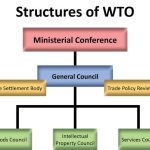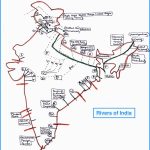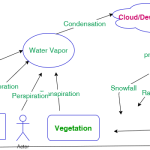
Inter state Water Dispute
Introduction
Most contentious issues in Indian Federalism Whisky is to drink, water is to fight.
Constitution provisons
Entry 56 of Union List—Union to regulate & develop inter-state rivers & river valleys
Entry 17 of State List— State to make laws with respect to water
Art 262—ISWDA 1956—State request w.r.t water dispute—Centre if satisfied that cannot be settled by negotiations—constitute a Water Disputes Tribunal
Amended in 2002 to include Sarkaria recommendations—1 yr time frame to setup Disputes Tribunal & 3 yr for tribunal to decide disputed decision
Reasons for water disputes
Limited water supply—Drought like situation in pre-monsoon season Inefficient water usage
Political opportunism—Rallying point for parties + fuelling regionalism Lack of concrete dispute resolution—Courts have been barred & tribunals have proved inefficient
Issues with ISWD Act (1956)
Separate tribunal to be est for each dispute— took 20 yr to constitute for cauvery
Inordinate delay in settlement of disputes—Cauvery WDT—Constituted in 1990, gave final award in 2007
Tribunal can only give an award but cannot enforce its implementation
Inst vacuum for implementing tribunal award
Composition of tribunal—limited to persons from judiciary—not include multidisciplinary experts
Nexus b/w water & politics often subverts and sabotage their resolution.
Cauvery water dispute—Kar refused to divert water in lieu of drought like situation, despite repeated warnings by SC
Why river water disputes linger
Extraordinary delays in constituting tribunal
Delay in reports & decisions given by Tribunal—Mahadayi Water Disputes Tribunal. Sub-judice Matters—Either States approach SC (136) on legal issues or private persons under Art 32 (linking with violation of Right to Life) —Krishna, Cauvery Water Disputes Tribunal.
Politicisation of the dispute based on regionalism & for vote bank politics—Dispute b/w Tamilians & Kannadigas for Cauvery river water
ISWDA (Amendment), 2019
Dispute resolution committee— to be est by centre before referring dispute to tribunal to resolve dispute amicably by negotiations within 1 yr (extendable by 6 months)—If not settled—Refer to ISWD-T (within 3 months)
Est of a single ISWD Tribunal—by Centre which can have multiple benches—All existing tribunals will be dissolved— Must give decision within 2 yr (+ 1yr) & its Decision shall be final & binding + No requirement of publication of decision of Tribunal in Gazette Composition of Tribunal—CP + V-CP + 3 judicial + 3 expert members + Centre may also appoint 2 experts serving in CWES

Analysis of 2019 act—
+ves
Will Streamline + Expedite DRM
Awards given by Tribunal would be notified immediately unlike earlier when Centre notified awards causing delay in implementation.
Challenges
States like TN & Od raised concerns about appropriation of more powers by centre to decide water disputes b/w States
Not clear about what will happen if disputing parties don’t comply with tribunal award
Award can be challenged in SC
Effectiveness is diluted due to nexus b/w water & politics.
Way forward
Inter-state council can play a useful role in facilitating dialogue among States. MIHIR SHAH Report—Bring water into concurrent list & constitute Central water authority to manage rivers
Inter-linking of rivers
Setup River boards
France’s system of “water parliaments”—R/S for managing country’s rivers
2nd ARC—
SC should avoid entertaining dispute under Art 136.
Creation of River Basin Org constituting Central Govt, State Govt, Local Govt, Water users
Fali S. Nariman criticizes WDT functioning & suggests to switch to 1956 pattern.
Prof. Ramaswamy Iyer—Adjudication is an unsatisfactory way of dealing with such disputes. A negotiated settlement is infinitely superior. Adjudication is divisive and leads to exaggerated claims on both sides.
Conclusion
Resolution of ISWD is vital for harmonious functioning of India as a federal state.
Hostile hydro-politics, conflictual federalism & ambiguity around dispute resolution. They are rooted in the constitutional complexities, contentious political federalism, and identity-based electoral political dynamics of India .











![UPSC CSE Topper Mains Answer [Gaurav Agarwal] word-image-10753-1](https://iasbio.com/wp-content/uploads/2023/06/word-image-10753-1-150x150.png)




